![]()
“I’m already looking forward to a whole new year’s worth of books,” says FOF book critic Linda Wolfe, the award-winning author of 10 books and a 12-year veteran of the National Book Critics Circle. “But, before the new starts jostling the old off the shelves and out of the easy reach of memory, here are the books I loved most in 2012.”
What were your favorite books of 2012? Share them in the comments, below.
![]()
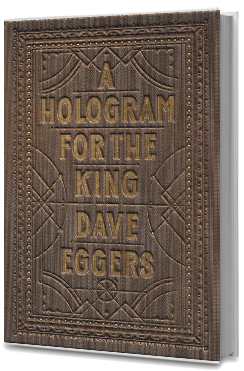 A Hologram for the King by Dave Eggers
A Hologram for the King by Dave Eggers
McSweeney’s Books
This fast-moving, spare novel is about Alan Clay, a down-on-his luck, out-of-money, middle-aged American businessman. Alan hopes to make a comeback by setting up a communications system for a model city being built by a Saudi Arabian prince. The book will make you sad, the way Death of a Salesman did, but also will make you laugh with its depiction of the absurdity of life on the sandy edges of civilization. Eggers’ hero, alienated from his family by divorce and his friends by death, waiting and waiting for a King who never comes, embodies Eggers’ dire vision of the plight of the contemporary middle-class American man.
![]()
 American Tapestry: The Story of the Black, White, and Multiracial Ancestors of Michelle Obama by Rachel L. Swarns.
American Tapestry: The Story of the Black, White, and Multiracial Ancestors of Michelle Obama by Rachel L. Swarns.
Amistad/HarperCollins
American Tapestry is much more than its subtitle suggests. Swarns, a New York Times reporter, is not just a portraitist but a landscape artist. An energetic researcher, she goes beyond telling us the tales of as many of Michelle Obama’s ancestors as she could unearth through assiduous digging, but renders the history of the places and times in which each of those ancestors lived. She has written not just a work about specific individuals, but one about slavery, Reconstruction, the Great Migration and the different social climates of the North and South. It’s a work rich in information, rendered in a highly readable engrossing style.
![]()
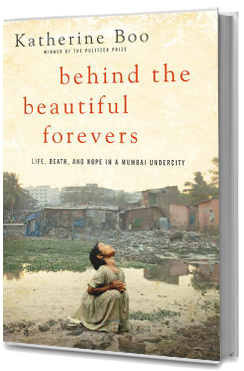 Behind the Beautiful Forevers: Life, Death, and Hope in a Mumbai Undercity by Katherine Boo.
Behind the Beautiful Forevers: Life, Death, and Hope in a Mumbai Undercity by Katherine Boo.
Random House
A devastating tale about life in a Mumbai slum, Behind the Beautiful Forevers tells the story of a group of individuals whose existence would be unendurable to most of us. New Yorker staff writer Boo’s lower depth characters, as vivdly drawn as the characters in a Dickens novel, have little to their names but their will to claw their way out of poverty . Garbage pickers, prostitutes, drunkards, they live within sight of a luxury hotel, yet sleep eight or ten to a room, dwell in houses made of cardboard and stray pieces of tin and walk along unpaved alleyways ankle deep in filth and debris. Boo spent years living among and researching the lives of these unfortunates. Although she’s technically a journalist, she writes with a great novelist’s grace. Not to mention a great humanist’s compassion, showing us the human spirit that cannot be quenched, no matter how harsh life is.
![]()
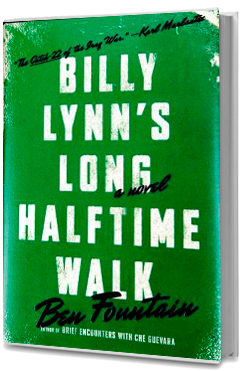 Billy Lynn’s Long Halftime Walk by Ben Fountain.
Billy Lynn’s Long Halftime Walk by Ben Fountain.
Ecco/HarperCollins
Short story writer Ben Fountain was inspired to write this book by seeing a Dallas Cowboys game on TV, watching the flashiness and lushness of the halftime entertainment while reflecting on his usual TV diet of grim news reports about the bloody Iraq war. You don’t need to know or care anything about football to appreciate his dazzling first novel. Billy Lynn is the Catch 22 of the Iraq war, the sweet spot where satire and heartbreak, scintillating language, unforgettable characters, and sharp-eyed insight into American life combine to make a book unlike any other you’ve read.
![]()
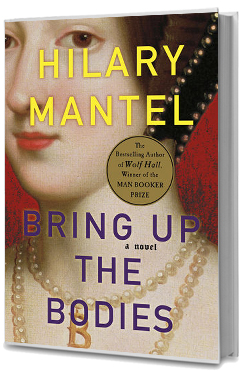 Bring Up the Bodies by Hilary Mantel.
Bring Up the Bodies by Hilary Mantel.
Macrae/Holt
A sequel to British novelist Mantel’s glorious Wolf Hall, the almost equally glorious Bring Up the Bodies takes up the story of the brilliant and complicated Thomas Cromwell as he assists his master, King Henry VIIIth, in getting rid of his second wife, Anne Boleyn. Cromwell is just as fascinating as he was in Wolf Hall, but he’s not quite as loveable, for in Bodies, Mantel gives us the side of Cromwell–masked in the first book–that is capable of suppressing doubts and foregoing moral principles to hold onto power. I wanted to go back and enjoy it again as soon as I got to the last page, and I suspect you will, too.
![]()
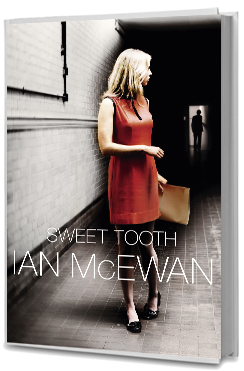 Sweet Tooth by Ian McEwan.
Sweet Tooth by Ian McEwan.
Nan A. Talese/Doubleday
McEwan’s fifteenth novel is a work about writing and creativity masquerading as a spy novel. The canny author explores the similarities between spying and writing and the emotional havoc these pursuits can wreak on both the spied-upon and the written-about, as well as its subversive effects on the practitioners of these dark crafts. More witty and at times downright funny than filled with chills and thrills, Sweet Tooth is nevertheless thrilling, because McEwan’s writing is so remarkable– smooth as velvet, vivid as a motion picture–and because embedded in the novel is the story of spy-crossed lovers that is surprisingly moving.
![]()
 This Is How You Lose Her by Junot Díaz.
This Is How You Lose Her by Junot Díaz.
Riverhead
Stories about love and loss told by a writer with a vibrant and utterly unique American voice. Diaz, a Dominican American, won the Pulitzer Prize for his previous work, the novel The Brief Wondrous Life of Oscar Wao. Here, writing about cultural differences, familial conflicts, and love and its discontents, he mixes elegant English with Hispanic street slang, creating prose that is not just exhilarating but supremely exciting.
![]()


